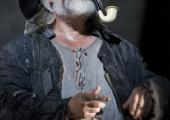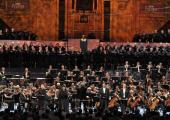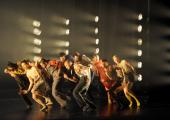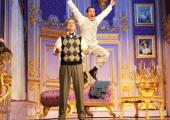Falstaff, Royal Opera

Splendid cast aside, Robert Carsen's new production peaks too soon
I didn't know whether to sigh or to yawn. Another opera. Another 50s set. At least it started well. In an obsessively wood-panelled hunting lodge, fat Falstaff (Ambrogio Maestri) lies in his bed in filthy long johns amid a sea of empty silver platters, working out a way to pay his bills and satisfy his lust. Not a 50s cliché in sight - yet. The banter between him and his helpers - Pistol and Bardolph - is focused and easy.







